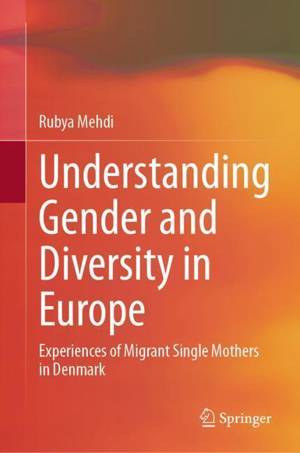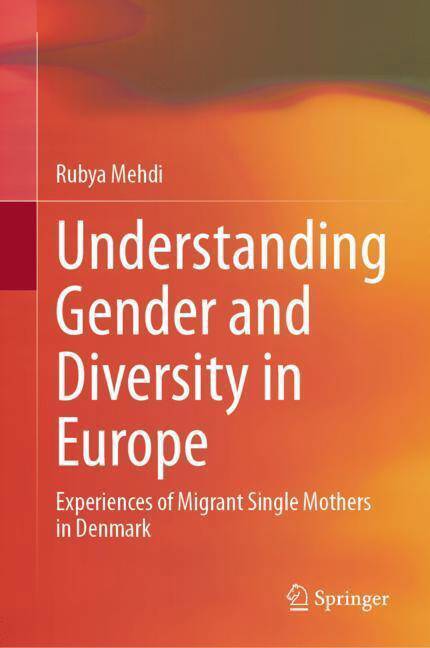
- Afhalen na 1 uur in een winkel met voorraad
- Gratis thuislevering in België vanaf € 30
- Ruim aanbod met 7 miljoen producten
- Afhalen na 1 uur in een winkel met voorraad
- Gratis thuislevering in België vanaf € 30
- Ruim aanbod met 7 miljoen producten
Understanding Gender and Diversity in Europe
Experiences of Migrant Single Mothers in Denmark
Rubya MehdiOmschrijving
This book is a socio-legal interdisciplinary study on gender and diversity in multicultural societies of Europe. It uses secondary data to discuss the broad experiences of migrant single mothers/women in Europe. Second, it includes narratives of experiences across the life course of single Danish-Pakistani women, starting from their pre-migration background to their elderly lives. The author uses an analytical framework used of relational collectivism and individualism, the former referring to the understanding of oneself as connected and interdependent to the family, and the latter referring to values of independence, personal interest and achievements. She uses the term "mélange familism" to explain a new family type that combines both relational-collectivist and individualist elements. A major part of this work is its deliberation of mélange familism and processes of social and legal practices in the everyday lives of single mothers. Crucially, the book demonstrates that social and legal traditions are not static, but are a product of improvisation. It makes a significant contribution by providing an alternate picture of single women/mothers as against the stereotypical image of 'passive, subordinate Muslim women'. It also contributes to gender and family studies by showing the increasing establishment of single-mother-headed households as a source of new possibilities; a new type or form of family construction, and not just the tragic residue of a broken two-parent family.
Specificaties
Betrokkenen
- Auteur(s):
- Uitgeverij:
Inhoud
- Aantal bladzijden:
- 395
- Taal:
- Engels
Eigenschappen
- Productcode (EAN):
- 9783031408922
- Verschijningsdatum:
- 10/02/2024
- Uitvoering:
- Hardcover
- Formaat:
- Genaaid
- Afmetingen:
- 156 mm x 234 mm
- Gewicht:
- 752 g

Alleen bij Standaard Boekhandel
Beoordelingen
We publiceren alleen reviews die voldoen aan de voorwaarden voor reviews. Bekijk onze voorwaarden voor reviews.











